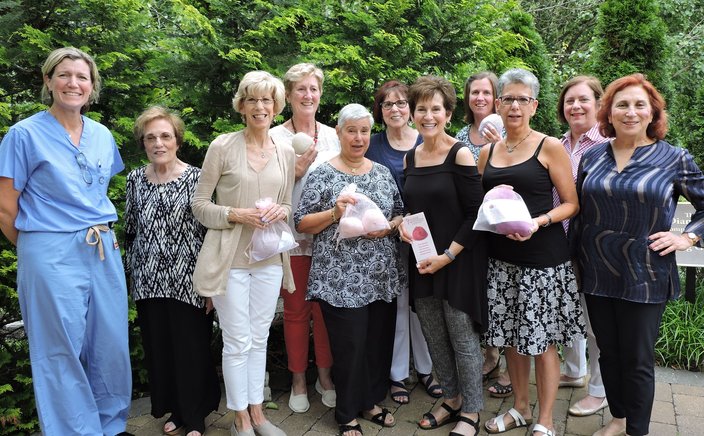Topic: COMMUNITY INTEREST
GET OUT AND VOTE, IT'S TIME FOR CHANGE IN NJ

The most important right that you exercise as a citizen is the right to VOTE.
In Article I, the Legislative powers section of the U.S. Constitution, Congress is given the responsibility of regulating elections (Time, Place, and Manner). States have the broad authority to regulate the election process. Elections matter more than you might imagine.
As you think about, who you will vote for next week, how will you choose who to best represent your interests? What are the qualities that make a good officeholder? Honesty? Integrity? Independence? Fearless? Intelligence?
During a recent township council meeting, the Hamilton township council questioned Mr Jeff Plunkett, Dir of Health for Hamilton, about the embattled animal shelter. After much questioning Mr Plunkett admitted that the Hamilton Township Animal Shelter had no standard operating procedures, conducted business for years without undergoing a routine inspection and was conducting euthanasia on a license issued by the Hamilton Township Division of Health. Initially, Mr. Plunkett stated that once the shelter was inspected by the DOH he swung into action to optimize the SOP’s for the animal shelter. As the council members questioned him further, he openly admitted that he never had any SOP’s at the shelter. This comment about the SOP’s resonated with us.
In 2014, there was a press conference where Mr Plunkett stated he rewrote the SOPs and Congressman Chris Smith stated that he reviewed the said SOPs that were prepared by the Hamilton Dept of Health. This press conference was taped.
This comment about the SOP’s was brought up in 2014 when there was a death in the township of a 4 year old boy due to EVD68. At a town hall meeting that was chaired by Congressman Chris Smith, the Mayor of Hamilton township and Mr. Plunkett. On stage in front of the residents all three political leaders stated they had read the existing SOP’s and were updating them and training the staff in the school systems in Hamilton, Mercer County.
https://www.youtube.com/watch?v=d2k6Qc9FRfE Dr Oz video on Eli
We made an OPRA request asking for the SOP’s that were developed and existed from 1995 to Sept 26 2014 (the day of the death of the 4 year old boy from EVD68). The response from the Township of Hamilton was as follows:
“Mr. Plunkett has confirmed with this office, the Department of Health does not have any documentation regarding your request. This OPRA request is closed as there is no records pertaining to this request.”
No SOP’s for the schools available? How can that be? There was a nationwide epidemic going on in 40 states and over 300 cases, and the township had zero SOP’s on how to keep the schools clean and free of disease?
Congressman Chris Smith, Mayor Yaede and Jeff Plunkett all stood on a stage in front of residents of Hamilton and told them the opposite and stated that they rewrote the SOP’s once the death of the 4 year old boy in Hamilton occurred. Congressman Chris Smith was adamant and stated numerous times during this town hall that he personally reviewed the policies that were being updated. However, we learned from the OPRA request that the SOP’s never existed prior to the death of the 4 year old boy.
Truth of the matter was, they had no policies that focused on cleaning the schools according to the results of the OPRA request. During the press conference the nurse from the township also stated that the policies were established by Mr Plunkett and she then went to the schools to implement them, after the death of Eli.
The public’s safety has to matter. Any politician that feels they have license to lie to residents should never be given the privilege of public office. Whether you are the Director of the Department of Health, Recreation, Senior & Veterans Services, a Congressman or a Mayor you never should openly deceive the public. Especially when it comes to public health. A child died in Hamilton from EVD68. It was a very sad occurrence that the lack of SOP’s clearly could have had a direct effect on the child. How long do the residents of NJ have to endure this shirking of responsibilities of their officials?
GET OUT AND VOTE ON TUESDAY YOUR VOTE MATTERS!!!!!
Some of the many videos on this subject below.
Video 1
https://www.facebook.com/YardvilleNJ/videos/1507110909548153/
5:30 resident talks about Plunkett being M.I.A. during overseeing of the cleaning of the schools.
7:48...timeline. Kid died on Thursday.....no action taken at schools until Monday 5pm to clean schools
8:49: Recommendations thru Div of Health with CDC, etc....
10:02....Div of health makes recommendations...even school shut downs
12:53: shares how health officer did not share with council about death of kid. He did the same with the "surprise" inspection from DOH.
13:50 Lessons learned......obviously nothing was learned.....they did the same thing with animal shelter.
VIDEO 2
https://www.facebook.com/YardvilleNJ/videos/1507157282876849/
0:05: Nurse from Div of Health speaking. She did training of call center and schools. So SOP's made by Div of Health that according to my OPRA request were not done by the Div of Health. This is a contradictory representation of the actual facts they shared in this town hall
8:18: Jeff speaks...about samples and how he worked with State epidemiologist...
12:33...IRena states...look ahead to optimize communication.
-Duffy comment: As we know they did not do this. Why was the Mayor and Dir of Health not measuring this?
14:30, resident asks Plunkett how to optimize situation, Plunkett explains how Div of Health works with School nurse to implement procedures.
16:31: IRena….Plunkett talks about procedures that the states he HAS in his office. But my OPRA request when requested he said they do not have them
Video 3
https://www.facebook.com/YardvilleNJ/videos/1507156929543551/
Please go to 1:20 minutes into this audio from a recording in 2014 as it pertained to the resident who died from EVD68. "At the request of the Board of Education, who was in contact with Jeff, the Div of Health developed and distributed precautionary measures....." she goes on to say..."they had limited information at that time."
As you can clearly hear...this is in direct conflict with what Jeff is stating from my OPRA request.
7:08...Jeff goes thru process again.
13:93: Report not filed to state. Is school required? Nurse would not answer
Video 4
https://www.facebook.com/YardvilleNJ/videos/1507157159543528/
2:57" robocalls. I would suggest you listen to the entire audio







 Lack of appropriate water level for the turtle. 3 month water changes
Lack of appropriate water level for the turtle. 3 month water changes



